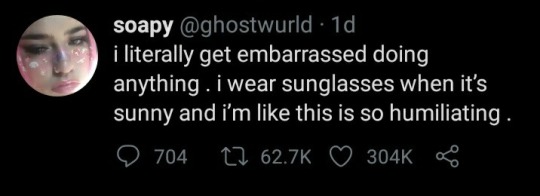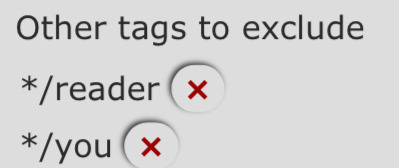just a nerd who’s getting slowly consumed by the darkness. Come along for the ride!Currently hyperfixated on OFMD and GO my side blogs: @ikeameatballboi (for sillies) and @spooky-manatee-soup (for art/writing inspo) find me on ao3: https://archiveofourown.org/users/JM_Finnigan
Last active 4 hours ago
Don't wanna be here? Send us removal request.
Text
character: *isn’t 100% good or evil*
The Internet: hello naughty children it’s Discourse time
235K notes
·
View notes
Text
greta was time's person of the year a few years ago. she was adored by all liberal world leaders and parties. and when she learnt about people's struggle under occupation and colonialism, she stood in solidarity with them . she now stands with palestine and armenia and kashmir and every oppressed person in the world. she could have been rich as fuck by simply remaining as a climate activist. yet she chose to do the right thing. i love her for her integrity.
82K notes
·
View notes
Text
Collecting all "I love you's" in Stranger Things [updated ... found some more]













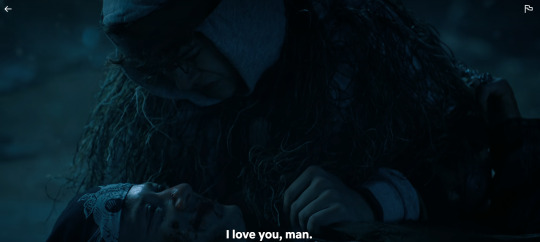

We've talked about this before but i found a lot more i didn't include in my previous post, holy shit.
This proves that historically, 'I love you' in Stranger Things has exclusively been used platonically and when it has been used romantically, ( re: Nancy @ Steve and John [not looking at each other, giving the audience the idea that something's off], El @ Mike during her letter which was full of lies, Mike @ El, again not looking at each other [technically] implying something's off. Eyes are the window to the soul and whatnot. ) Something's Not Right.
I have more to say based on this.
Will has been told 'I love you' from Jonathan and Joyce both, maybe in S5 Mike completes the trifecta, considering these are the three most important people in Will's life.
Did we notice the parallel of Nancy and Mike? Bc it just hit me they both said 'i love you' to their supposed romantic interest but didn't really mean it. It's just in a different order First, Nancy says 'love you too' to Steve and it later comes out she doesn't. Whereas Mike does not say 'i love you' to El when she needs him to only to 'confess' later. Yeah what a mess this was
Mike's love confession to El is literally sandwiched between two platonic affirmations of love. It's Jonathan says 'I love you' to Will first Mike says 'I love you' to El second Eddie says 'I love you' to Dustin third Will and Dustin both say 'i love you too' but El doesn't get the chance to say it to Mike [obviously we understand the context of the scene and why she couldn't but that was still an intentional writing choice so yeah]
38 notes
·
View notes
Text
Severence Theory: Was Dieter Eagan the First Ever “Innie”?
(Content Warning: Mentions of CSA, Spoilers)


Woe’s Hollow was an incredible episode and divergence from the cadence of the story.
While a lot of its emphasis was placed on the relationships between the current characters, we get significant insight into the lore of Lumon with the text found in the Scissor Cave.
Kier tells of his twin brother Dieter, a figure who up until now was unheard of and undocumented as a member of the Eagen family. On its face, the story tells of Dieter taking Kier into the forest where he masturbates and is subsequently melted presumably by or as a result of the temperament of Woe into “chaos’s whore”.
While this may be a specific detail to hone in on, in the description of Dieter’s self pleasuring specifically uses the word “thrust.”
Thrusting does not imply self pleasure but instead penetration.
This description appears to be somewhat akin to a warped perception of Kier having been assaulted in the woods.
His association with Woe and the subsequent “punishment” of Dieter seems to represent a sense of self punishment or guilt in regards to sexuality.


As a result of being presumably assaulted, Kier’s trauma could have been manifested into either a non-tangible idea of Dieter or as an alter.
Many cases of DID (Dissociative Identity Disorder) stem from childhood sexual assault where the brain compartmentalizes its consciousness and memories into separate “personalities” called alters.
Dieter could be Kier’s alter that holds his sexual trauma and is blamed for its infliction of the temperament of “Woe”.
Kier and Dieter being within the same person can be further indicated in how the marshmallows showing Kier’s face are thrown into the fire, the imagery reflecting Kier’s face being melted as Dieter’s was in the story.
This is shown after Milchick reprimands Helena for mocking the story and “not understanding” it. Rather than as a punishment for misbehavior, this could be Milchick’s inadvertent way of trying to explain to Helena what her ancestor’s story meant.
To a degree, Helena may already understand without consciously knowing it. When Helena says that Helly is like her sister, she may not be lying. She could view Helly as a sister in the same way Kier views Dieter as a brother.


The Innies in the Severance universe highly resemble Alters and how they function.
They have the same perception of concepts that their Outies have but hold different memories. Their disorientation and lack of memory reflect the amnesia that is often used as a defining symptom of DID.
Kier’s experience with DID could be what inspired Lumon to develop the Severance procedure and their view of Innies.
Whereas Kier views humans as holding the four tempers, Innies may be viewed as only having one, hence why they’re viewed as subhuman. Kier views his alter Dieter as embodying Woe and subsequently seen as subhuman, as “no one’s brother”.
This would reflect how the four MDR workers resemble the four tempers respectively, Mark (Woe), Helly (Malice), Dylan (Frolic), and Irving (Dread).
In terms of theming, Severance references repression and compartmentalizing them as separate entities to deal with strong emotions, especially in the case of Mark Scout, who’s reason for severing was so he could forget his Woe in relation to Gemma, that Woe which now embodies his Innie Mark S.
84 notes
·
View notes
Text
once again passing out this flyer (on helena's assault on mark in the tent)








42 notes
·
View notes
Text
Severance S2 spoilers, but I think innie!Mark running back to Helly is deeper than just him realising he doesn’t have feelings for Gemma. As we know, outie!Mark gets severed because he doesn’t know how to cope with Gemma’s passing, meaning he’s someone who struggles to accept death (and by extension change). We see this characterisation extend to innie!Mark when Petey’s disappearance forces him to re-experience grief. Notably, innie!Mark’s gut reaction is to hide the group photo of Petey so he won't be reminded of him, similar to how outie!Mark hides Gemma’s things in his basement because it’s “easier pretending she never existed”. Innie!Mark later shreds the map on the back of that same group photo when Helly presses him to question Petey’s death, again, very similar to how outie!Mark tears up the picture of Gemma. Despite differing contexts, both versions of Mark try to prove they don’t “give a shit” about someone they are very clearly mourning.


Innie!Mark isn’t just mourning his best friend, but also how things used to be. His attachment to Petey doubles as an attachment to the culture created by his coworkers, again, not so dissimilar to outie!Mark mourning his old life with Gemma. In both cases, he doesn’t want things to change. The idea that work culture is created “by the people” is established in the first episode, during a meeting between innie!Mark and Cobel:

Here, Cobel explicitly associates hell and heaven with the work environment, noting that hell is not reality but our perception of reality, influenced by our environment. Essentially, the people at work determine whether the workplace is worth being attached to. Although this philosophy isn’t universal (not everyone loves their coworkers), it aligns with innie!Mark’s values, as demonstrated in the shredding scene:

Here, innie!Mark confirms that he isn’t loyal to Lumon, but to his colleagues. We also learn that in the face of uncertainty, he would rather lean on the support of his immediate community (his “family”) than become isolated, reframing the workplace as an intimate (and domestic) space. Considering that severance is meant to separate people’s work lives from their personal lives, this scene is particularly fascinating. Especially since Helly resists conflating the professional sphere with domesticity (“I could not, with a razor to my throat, be less interested in being your family”), viewing work as a prison that restricts her freedom (which, ironically, is likely the reality of Helena’s personal life). Interestingly, innie!Mark resents Helly’s constant disobedience until she tries to commit suicide. Again, when he’s confronted by death.
The show continuously reminds us that loss of intimate attachment, whether at work or home, is what both versions of Mark fear most. For example, innie!Mark is the only worker who hasn’t tried to quit. Helly repeatedly tries to quit in season one, even though she knows it’ll end her life; Irving is more than ready to quit after he learns Burt is married, and is ready to accept his death after outing Helena as a mole; Dylan also tries to quit when he’s separated from Gretchen and realises she won’t be coming back. Innie!Mark is the only severed worker (of the main cast) who can't accept death. Walking out that door terrifies him, and Lumon nurtures that fear. As Milchick says in season one, death isn’t something that happens at Lumon. The workers don’t even know what death looks like, as shown when MDR find the animal corpse in Woe’s Hollow:


Suddenly, the external world of the natural environment overwhelms the workplace, bringing death in its wake. Yet, the internal world of domesticity also brought loss in the form of Petey, Burt, and Irving’s “retirements”. Clearly, neither private nor public spaces are appropriate labels for the workplace, because the workplace is unnatural, monitored, and sealed off from reality. Lumon literally advertises this state of being, yet woe resulting from the loss or death of a loved one keeps threatening to invade this sequestered paradise. The personification of woe being a ghostly bride (AKA someone’s dead wife) also feels pretty pointed.
But let’s return to that point from earlier about work culture. As we have already established, innie!Mark is more than willing to work at Lumon if he becomes accustomed to the culture created by his colleagues. Helly contrasts him in this sense, as she is both independent and capable of rallying people to action without group support or approval (as we see during her speech to Choreography and Merriment). Innie!Mark, meanwhile, quelled his rebellious behaviour the moment he made friends with Petey. Under ordinary circumstances, innie!Mark is unlikely to be the kind of person to just up and leave his job because it’s exploitative. His decisions are not guided by morality, they’re guided by emotional attachment. We see this with outie!Mark in season one: his views on Lumon only begin to shift after he attends Petey’s funeral, and goes to his (Petey’s) daughter’s concert. Before this moment, outie!Mark is mostly apathetic about the inner workings of Lumon because severance is a convenient coping mechanism. It’s only when the peace is disturbed, and someone he’s grown to care for dies, that he changes gear.


Innie!Mark behaves similarly when he demands to have his team back in the first episode of season two. It’s the most rebellious we’ve ever seen him. He doesn’t want his friends to disappear, and once they’re back, he doesn’t quit despite being given the option to leave. He wants to find Ms. Casey (who he knows is his outie’s wife), sure, but he’s also attached to Helly and his other colleagues. They’re his family, and he is very unlikely to abandon his family.
Outie!Mark is also very unlikely to abandon his family. The moment he learns Gemma is alive, he’s willing to risk everything (including his safety) to get her out. His stubbornness and loyalty are only rivalled by his innie’s, who is effectively himself. The problem isn’t that innie and outie Mark are different people; it’s that they’re the same person. If the roles were reversed, outie!Mark would never leave Lumon for Helly, not if it meant leaving Gemma behind. He would do the exact same thing innie!Mark does because neither version of him can accept loss, which is why he can’t leave. It’s not just Helly: it’s Dylan and all the other innies he would be abandoning. Not to mention that leaving would mean his certain death and Mark has never been able to deal with death, something Lumon promises to shield its workers from.
Why don’t people quit their jobs, even when they know it’s corrupt? Because people become complacent, conditioned, and attached to the status quo. Innie!Mark was always going to run back into the tender arms of hell. For a moment, it probably seemed a lot more like heaven to him.

This has been Mark’s consistent characterisation throughout the show. Do I view innie!Mark and outie!Mark as separate entities? Yes and no. I do think that innie!Mark is just as much a person as outie!Mark, and that they are different versions of the same person. However, that doesn’t mean they aren’t the same person. If innie!Mark was different from his outie, he probably would’ve gone with Gemma. But outie!Mark has never learned how to accept grief, and innie!Mark is a version of himself that hasn’t evolved past this worldview either. What we see at the end of Cold Harbour, then, is a very literal representation of self-sabotage. Because the type of person who would’ve gone with Gemma wouldn’t have severed himself to avoid grief in the first place. For Orpheus not to turn around, he would've had to be someone else.
104 notes
·
View notes
Text




aggregation of several threads w/ similar observations
3K notes
·
View notes
Text


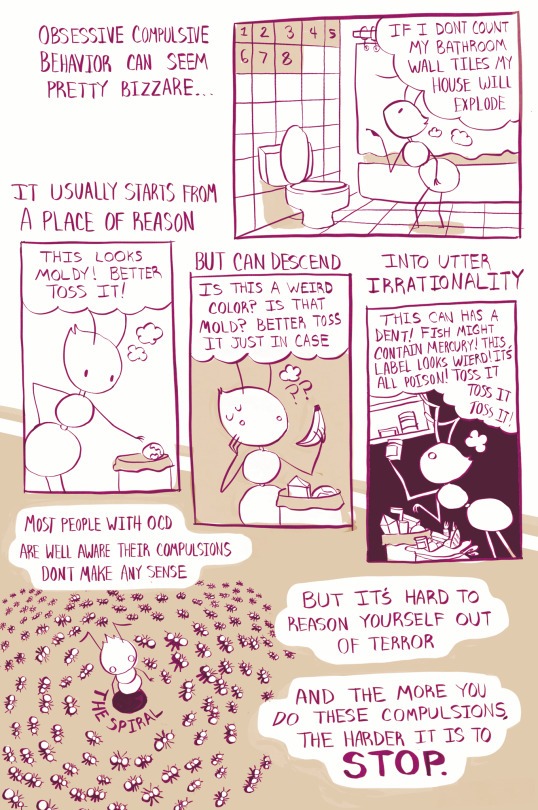
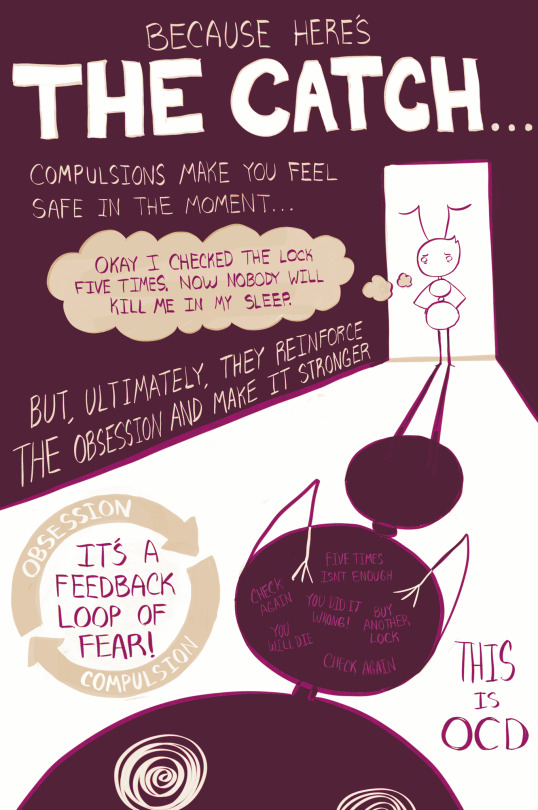

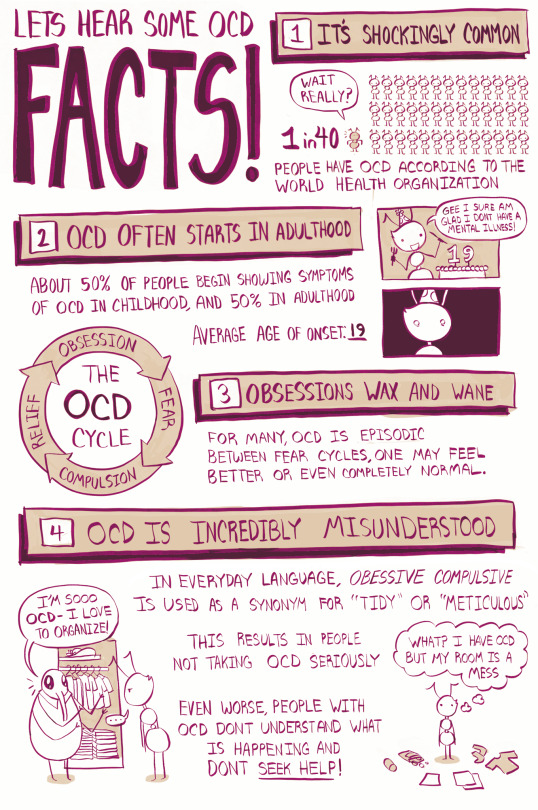
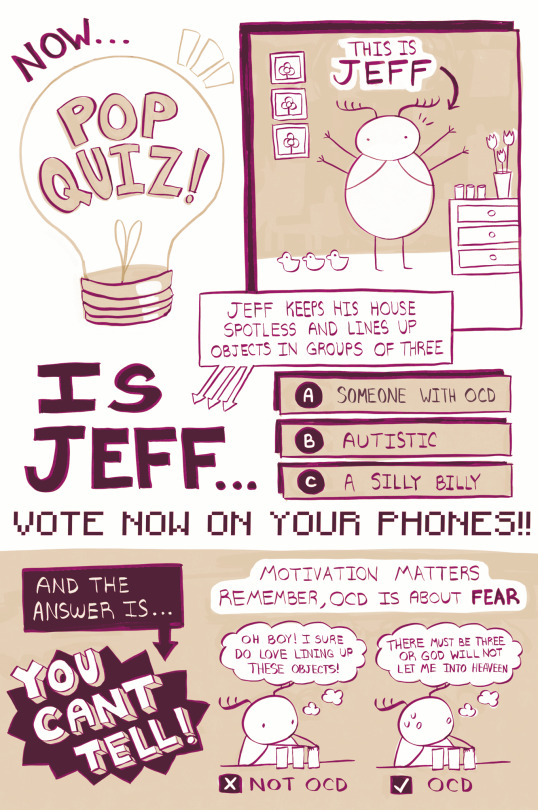


Greetings bugs and worms!
This comic is a little different than what I usually do but I worked real hard on it—Maybe I'll make more infographic stuff in the future this ended up being fun. Hope you learned something new :)
If you are still curious and want to learn more about OCD, you can visit the International OCD Foundation's website. I also recommend this amazing TED ED video "Starving The Monster", which was my first introduction to the disorder and this video by John Green about his own experience with OCD.
The IOCDF's website can also help you find support groups, therapy, and has lots of online guides and resources as well if you or a loved one is struggling with the disorder. It is very comprehensive!
Reblog to teach your followers about OCD
(But also not reblogging doesn't make you evil, silly goose)
78K notes
·
View notes
Text
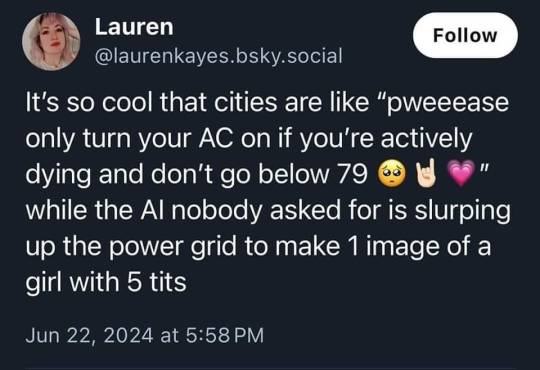
See also, "We're in a drought; conserve water!" Meanwhile, bottled water companies and golf courses for rich folk empty the aquifers.
233K notes
·
View notes
Text
- Helly asking Mark in the pilot if she was dead and the Severed Floor was Hell.
- Mark and Gemma's story being a spin on the myth of Orpheus and Eurydice. A man who tries to rescue his deceased wife from being trapped in the Underworld.
- "Well boss, I guess this is the part where I should tell you to go to hell. Except you're already here."
- The musical notes that play during the elevator transition of Outie to Innie being a G and C#. A tritone, also known as the Devil's Interval.
- Mark mentioning Persephone in the latest episode, the Queen of the Underworld. Whose life is split in two, spending half her time down there, and the other half up above in the world of the living.
- "You know, my mother was an atheist. She used to say that there was good news and bad news about hell. The good news is, hell is just the product of a morbid human imagination. The bad news is, whatever humans can imagine, they can usually create."
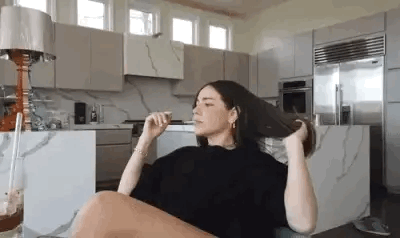
8K notes
·
View notes
Text

“Lemme tell ya, ‘Star Wars’ always had the vibe of being in the most whitest, elite space. It’s a franchise that’s so white that a Black person existing in [it] was something,” Boyega said in the documentary. “You can always tell it’s something when some ‘Star Wars’ fans try to say, ‘Well, we had Lando Calrissian and had Samuel L. Jackson!’ It’s like telling me how many cookie chips are in the cookie dough. It’s like, they just scattered that in there, bro!”
(Source)
#just rewatched the force awakens for the first time in ages#forgot how much i liked it and how excited i was for the new trilogy#and the way disney proceeded to just drop the ball to go pander to them#while their actors get harassed!#they all deserved better#especially boyega#especially tran because holy shit#also suddenly people are being sooooo affectionate towards the prequel trilogy but i remember how they treated those actors too#ive been on the sidelines of many fandoms and star wars has some of the most entitled and horrible people#if youre so mad about a black guy being in a lead role in your fucking space fantasy movie#< prev tags
13K notes
·
View notes
Text
Severance as a concept is horrifying
It's the equivalent of you having your own body for 12 hours in a day and another random person, who you have NEVER MET having your same body for the other 12.
What will they do in your body? It's entrusting an entire stranger with the vessel that keeps you alive. The reputation that you live off of. I don't know one person who would do that. (phrase it as: you'll never have to work again! and suddenly everything I said above is no longer important)
Reintegration as a concept is equally, if not more horrifying.
You meet this stranger who shares your body. But now you're not just giving them your body for 12 hours, you are living in that body with them. You are two wholes in a body only made for one whole. You are genuinely and literally two minds forced back into one.
How do you assert your own opinion when this other stranger (who is also yourself, and views you as the stranger) holds a different opinion. How do you cope with that??
61 notes
·
View notes
Text
a lot of stories treat romance like it makes the relationship between two characters self explanatory and to be honest it doesn’t
38K notes
·
View notes
Text
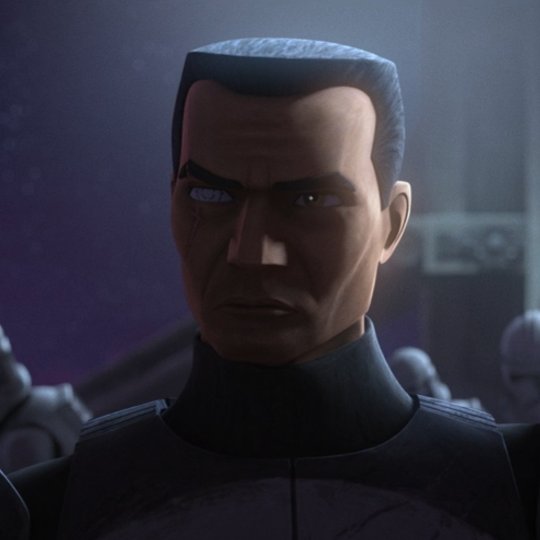

"And they were roommates"
In this case, the house will be an AT-TE

607 notes
·
View notes
